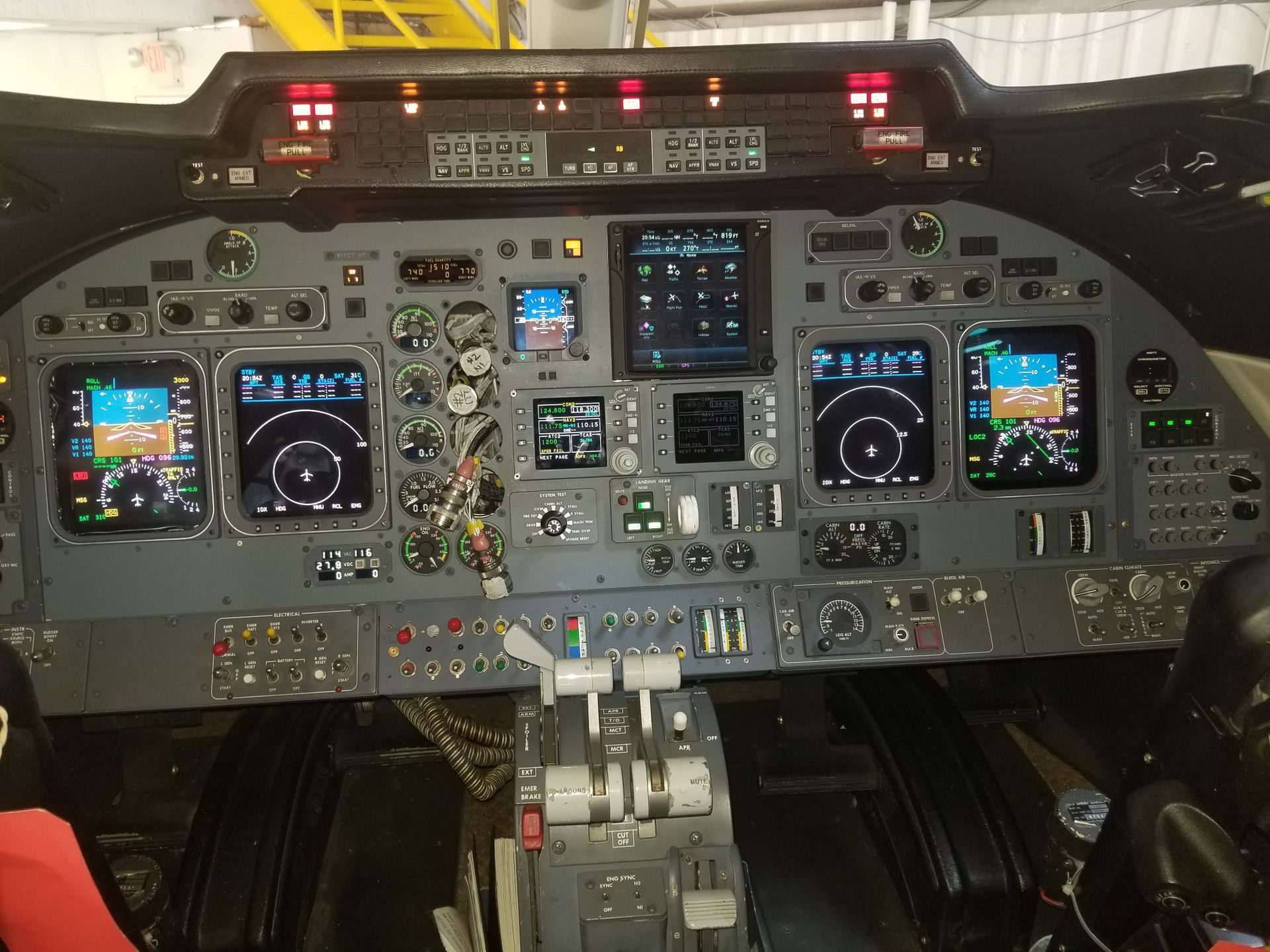What is Flight Operations Quality Assurance & Why is it Important?
How FOQA Can Help Pilots & The Aviation Community

Flight Operations Quality Assurance (FOQA) is a safety program designed to make aviation safer by allowing aircraft operators, pilots, maintenance crews and engineers to share and analyze de-identified aggregated information as downloaded from the existing Digital Flight Data Recorder (FDR) installed on many aircraft. FOQA analysis provides deep access to rich flight data of aircraft operational and health information and presenting it in an easy-to-understand format. This well-organized information allows users to identify flights and procedures that require further review. Aircraft operators get instant access to past and current flight data enabling detailed reports while identifying trends.
Known as flight parameters, aircraft performance information that is normally recorded on a Digital Flight Data Recorder is utilized by a FOQA program in an active manner to identify trends in flight operations while also providing health monitoring of aircraft systems, powerplants and aerodynamic performance. Thousands of flight parameter data points are downloaded via a data retrieval device known as a Quick Access Recorder (QAR) or from the FDR itself.
The QAR, with storage capacity much greater than any FDR, automatically records many parameters of data from the past flight and makes for easy transmission to FOQA services providers for decoding, analysis and reporting services. Many FOQA reports utilize innovative graphic visualizations of flight activity for easy interpretation of the vast amounts of data now available to be reviewed. This data is immediately reviewed against the historical records of like-type aircraft and/or flight operations for direct comparisons of aircraft performance. Software tools apply algorithms to identify suspect flight parameter patterns and highlight them allowing the aircraft operator to review them in greater detail. The results are stored indefinitely, adding to the trove of valuable historical data used for aircraft operational analysis for associated FOQA programs throughout the world.
FOQA is important for many good reasons including increased safety, maintenance planning and pilot training during simulated, instructor-led or real-world flight events. FOQA is a safety tool providing highly detailed, graphic rich, prompt feedback to the global flight community. This capability contributes immediate operational improvements as it increases air safety for pilots and aircraft alike across all operational spectrums.
Air safety is improved with the identification of risks and hazards due to abnormal OR normal operating procedures. Standard Procedures may include latent vulnerabilities as determined by well analyzed observations of aircraft operating methods and practices while flying them. Flight crew performance benefit greatly with more constructive feedback and precise training regimes for each pilot. Operational matters such as air carrier training programs, airline operating procedures, air traffic control procedures, airport maintenance & design and aircraft maintenance & design can also benefit.
The highest value of FOQA programs is the early identification of adverse safety trends that, if uncorrected, could lead to accidents. A key element in FOQA is of its ability to suggest corrective action needed to assure that unsafe or inefficient conditions are effectively resolved.
A flight department with one aircraft, on-demand charter operators on up to commercial airlines with large fleets of aircraft can all operate their FOQA programs independently or they can participate in a deidentified data sharing platform such as the International Air Transportation Association’s Flight Data eXchange (FDX) or the FAA’s Aviation Safety Information Analysis and Sharing (ASIAS) platform. IATA’s FDX and the FAA’s ASIAS platform help to monitor global trends or national trends respectively in aircraft operations. Operational risk issues such as flight operations, air traffic control, airports & aircraft designs are benchmarked against 8 million other flights for identifying safety risks.
The fundamental objective of the FAA / pilot / air carrier partnership is to allow all three parties to identify and reduce or eliminate safety risks along with minimizing deviations from the regulations. To achieve this objective and obtain valuable safety information, the airlines, pilots and the FAA are voluntarily agreeing to participate in this program so that all three organizations can achieve a mutual goal of making air travel safer. A cornerstone of this program is the understanding that aggregate data that is provided to the FAA will be kept confidential and the identity of reporting pilots or airlines will remain anonymous as allowed by law.
In recent years, the FAA and the air transportation industry have sought additional means for addressing safety problems and identifying potential safety hazards. Based on the experiences of foreign air carriers, the results of several FAA-sponsored studies and input received from government/industry safety forums, the FAA has concluded that wide implementation of FOQA programs could have significant potential to reduce air carrier accident rates below current levels.
As a result of an ICAO recommendation, all airlines and operations that meet certain criteria are required under regional legislation to implement Flight Data Monitoring programs. However, in the United States, the Federal Aviation Administration does not yet require FOQA programs for commercial aircraft operators. The current European Aviation Safety Agency requirements mandate European registered aircraft weighing 27,000 kg or more, to be included in a structured flight data analysis program.
The FAA defined FOQA in its Advisory Circular #120-82, originally released April 12, 2004. The agency's Air Transportation Operations Inspector's Handbook - FAA Order 8400.10 details what a valid FOQA system contains. An excerpt from this document summarizes FOQA as a “voluntary safety program designed to improve aviation safety through the proactive use of flight-recorded data.”
Though voluntary, nearly every major airline in the United States maintains a robust flight data analysis program. Charter operators, Flight schools and privately managed flight departments with multiple aircraft are rapidly adopting voluntary FOQA as a standard practice because of the value of the information. FOQA unlocks critical performance and operational indicators in fuel management and flight efficiency, maintenance, procedural safety, block time analysis and ground turn optimization. This timely and accurate data enables airlines and fleet operators to rapidly make improvements to operational inefficiencies. Hidden inefficiencies are identified enabling a better customer experience and increased profitability for the aircraft operators. Flight schools and Simulator Training Providers can utilize this data for a more targeting training syllabus for each student while strictly monitoring the operational stresses imparted on fleets of training aircraft.
Airframe, avionics and engine trend information is reviewed to determine the nature of any required preventative or needed maintenance actions. Such actions might include the immediate notification of maintenance personnel if limits were exceeded that require inspection of the aircraft, reviews of a failure event to identify possible corrective measures or a determination that further actions are needed. Savings in costs of time and money are a powerful reason to utilize a FOQA program to maintain the best health of the aircraft while extracting the full value of its mission capabilities.
The benefits of implementing a FOQA program:
• Identify significant unsafe events allowing the operator to take appropriate action
• Perform trend analysis to highlight safety issues
• Benchmark your operations against a global database
• Focus training in specific areas (enhanced evidence-based training)
• Minimize unscheduled Aircraft on Ground (AOG) time
• Empower maintenance department to have access to data within minutes of landing
• Enable rapid diagnosis of issues and faster release of aircraft
Advantages to a Corporate Flight Dept. FOQA program besides statistical analysis, include
• Optimize practices and processes to minimize safety events by identifying areas of improvement in Standard Operational Procedures.
• Monitoring aircraft performance.
• Improving training programs by tailoring your policies and training programs to reduce safety events.
• Monitoring maintenance events and troubleshooting aircraft maintenance issues.
• Detecting airport operational issues related to:
• Arrival/departure procedure issues
• Late ATC Clearances
• Traffic Collision Avoidance System Alerts
Key features of a FOQA program:
Statistical Analysis. This is used to create profiles of flight, maintenance, or engineering operational procedures. The profiles can use several measurements to facilitate distributions of various criteria. A distribution of data will show all flights and enable an aircraft operator to draw comparisons with benchmarked data drawn from the global flight community.
Exceedance Analysis. This involves setting a specific limit for the flight data analysis program to detect for a particular parameter or set of parameters. As examples, the algorithms can be programmed to detect each time the aircraft roll angle exceeds 45 degrees or in the case of multi-state parameters, when an approach becomes unstable. This data can be evaluated over multiple flights to determine the number of exceedances occurring per flight segments to identify trends in aircraft operations.
Key ways in which FDM/FOQA can save an operator costs:
- You may prevent a devastating accident or costly incident.
- You may save money in engine trend costs, and possibly extend the life of the engine.
- You may save money in aircraft maintenance costs by finding and eliminating non-SOP flight techniques.
- You may save insurance costs. Many insurance companies will reduce rates if an operator can quantify their safety levels and demonstrate they are managing safety.
- You may save fuel costs. An intelligent fuel monitoring program will identify practices in flight operations where fuel usage can be reduced.
- Flight planning can be more finely tuned to the aircraft for expected weather conditions and route planning decision making responsibilities.
For more information, please call Rick Ochs at 614.537.3052 to download this full blog click here
BLOGS
The Impact of Using FAA STC's for ADS-B





